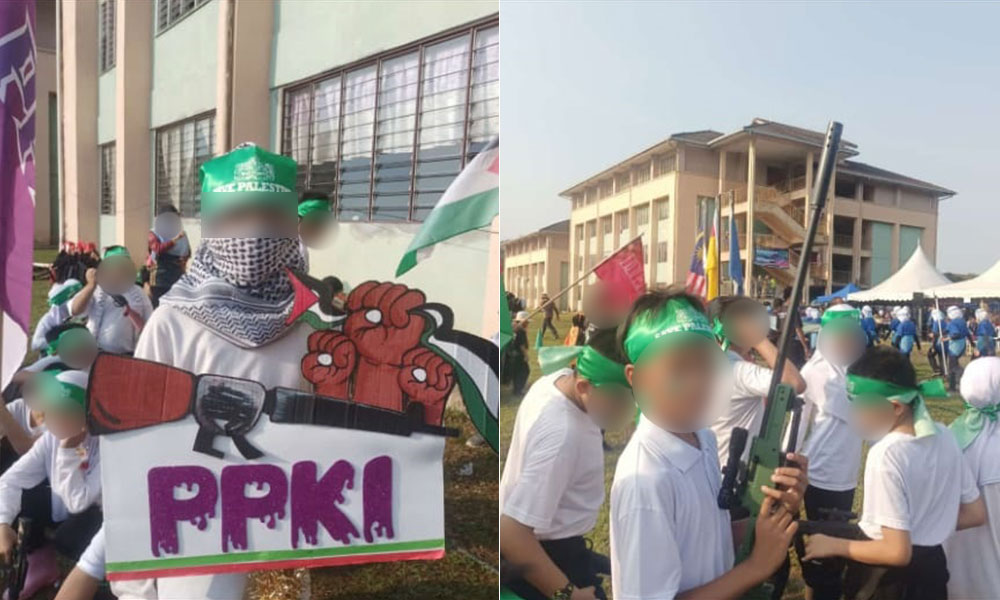Arguments that have erupted over the Education Ministry’s Palestine Solidarity Week programme reflect a sad reality in Malaysia, lamented Tian Chua.
The former Batu MP claimed that it was “communal division” that blurred society's vision of universal humanity and compassion.
While Chua (above) commended the controversial school programme that will run from today until Nov 3, he urged the Education Ministry to reorient the programme to more impactful activities that educate students on Palestinian history and culture.
“To instil compassion and empathy for other children, there should be visual or reading material on the inhumane conditions under occupation and in refugee camps.
“In the long run, we must also create a teaching syllabus on universal values and human rights. Our acts of solidarity are certainly not only limited to Palestinians.
“Our solidarity with Palestine has to start with presenting the truth to the broader public. The mission of the solidarity campaign is to unite us Malaysians in a true understanding of the plights of the Palestinians,” he said on Facebook.
Chua’s statement came after photos went viral on social media last week depicting schoolchildren carrying toy guns while donning headbands and the black and white “Palestinian scarf”, voicing support for Palestine.

While the incident occurred before the ministry’s designated period of the Palestine Solidarity Week, the programme drew criticism from several individuals and political parties.
Education Minister Fadhlina Sidek said the use of replica weapons was not part of the established guidelines for the programme, and that the incident was being investigated.
Proper guidance needed
Chua said students should be exposed to geopolitical issues and international affairs especially when they are related to human rights and humanistic values, however, teachers and parents must be well prepared to deal with sensitive topics.
“Even if one tries to avoid it, children have plenty of access to social media and they would encounter these complex issues by themselves.
“It would be better for education institutions to provide advice and guidance for the students to develop a proper perspective.
“The stated objective of the Palestine Solidarity Week is to promote unity, sympathy, respect and other humanistic values. The Education Ministry maintains that there are proper guidelines on how it should be conducted,” he added.
The former PKR vice president claimed that the ministry had overlooked some aspects of the programme.
“In truth, many Malaysians are still quite uninformed about the issues and they only look at Palestine from their own communal lens.
“An instruction with a list of dos and don'ts will not spontaneously translate the activities of Solidarity Week into sympathy and support for the oppressed Palestinians.
“It was launched without providing the schools with any prescribed material - videos, books, pamphlets, news analysis, investigative reports, resource persons.
“For that reason, the teachers or students have to use their own imagination to fill in the blanks. I believe they did the activities with good intentions. Let's not be overly harsh on them,” he said.

Cancellation call
The Kuala Lumpur and Selangor Chinese Assembly Hall (KLSCAH) opined that a lack of systematic training for teaching staff on the programme may lead schools into becoming a “breeding ground” for spreading hostile and violent ideologies.
It believes the programme implementation by the ministry lacks thoroughness and sensitivity.
“It fails to consider the diverse reality of Malaysia, a society characterised by a mix of different races, religions, and cultures, each with differing viewpoints on domestic issues, let alone the complex historical and geopolitical issues of the Israel-Palestine conflict.
“Determining right from wrong in such matters is far from straightforward,” it said.
KLSCAH called for the programme to be rescinded and instead wanted the government to focus on nurturing critical thinking and mature reasoning skills in students.
“Through public discussions and practical experience, students can develop civic awareness and a sense of human rights, leading to a more diverse worldview beyond the simplistic dichotomous viewpoint,” it added. - Mkini




No comments:
Post a Comment
Note: Only a member of this blog may post a comment.